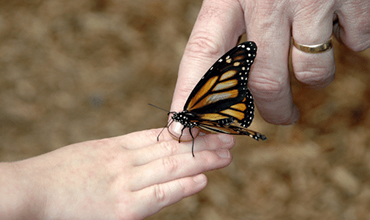
Since its inception in 2000, the term Climate Justice is being increasingly used in global negotiations. It covers a diverse range of issues such as equality vs equity, rights, and historical responsibilities for climate change. Climate justice while an area of priority, also needs to focus on principles of sustainability, by taking into account the regional priorities and socio-cultural settings. Youth are indeed the harbingers of transformative changes that will propel economic growth through a re-aligned new vision of innovation, change and diversity to minimize the impact of anthropogenic activities that contribute towards rising carbon emissions. Youth bring in a fresh perspective on the nestedness between capitalism and climate injustice. These frank utterances will help to usher in an era of fresh opportunities towards transformations in realms of economic and social development. The current global governance model need a youth driven policy response that is tailored to specific local contexts and needs. Prima facia evidence suggests that climate justice is a dire necessity, in the absence of which the youth may encounter an uncertain future. To avoid the temptation of including the discussions around ‘climate justice’ as another case of greenwash, intergenerational dialogues are important to accept viewpoints of each other. These need to be based on evidences and negate the scope of scepticism.
rought, flooding, extreme weather events, rising temperatures, and desertification are recognized as climate linked impacts that are a threat to the right to survive and thrive. Youth focussed solutions need to be created, while working with them, working for them, and working through them. Through the planned session we aspire to build up a need for intergenerational dialogues that accept viewpoints of each other so that narratives are created that balances the roles and responsibilities of a range of stakeholders. Embarking on the journey of learning about climate change and bringing a paradigm shift in the behaviour of individuals, it is pertinent that they should be equipped with skill sets that are holistic and inclusive of the right values and attitudes that empower them to contribute to sustainable development. In practical terms, the integration of climate knowledge and skills into existing education systems represent both immediate and longer-term challenges for responding to climate change. The immediate task is to climate proof education systems (adaptation), while the longer term call is to develop educational systems that equip learners with the requisite skills, knowledge and attributes to deal with future climatic challenges. Intergenerational dialogues have an important role to play in this context, wherein pooling of experiences of elderly generations is balanced by a zeal and commitment of the energetic young population.
TERI and EU have strong youth programmes, and this thematic session reinforces the relevance of such forums as a safe haven for youth to engage in constructive dialogues and action leading towards environment improvement. The session will also attempt in strengthening global citizenship competencies /education and the important role played by youth’s agency, communication, value for culture and diversity. It will further embed practices of including youth voices and choice in global learning spaces. By bringing together an intergenerational representation to deliberate on the theme of Climate Justice, TERI aspires to create a fresh and uninhibited perspective around roles, responsibilities, competencies and rights of stakeholders to deliberate responsibilities of nations towards provision of climate change viewpoints.
The session will start with brief 2-3 minute remarks. The moderators will then invite the speaker to deliver the Keynote Address. This will be followed by discussion inputs by two youth panellists who will deliver 5-minute leadership address. Based on issues emerging, there will a 15 minutes intergenerational dialogue between the Youth Speakers and the Moderator. The next segment will be the Youth Climate Conclave (YCC) Pledge followed by YCC Awards and Green Olympiad (GO) Awards.
The Energy & Resources Institute
6C, Darbari Seth Block, India Habitat Centre, Lodhi Road
New Delhi - 110 003 India
Email : wsds@teri.res.in
Ph. : +91 11 24682100 (Ext. : 2467)